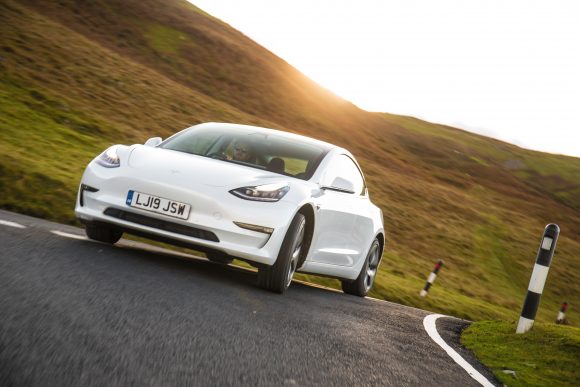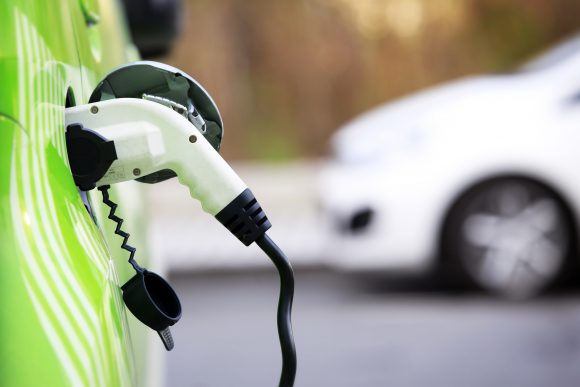The government is bringing forward its ban on the sale of new petrol and diesel cars from 2040 to 2030.
The 2030 ban covers Internal Combustion Engine (ICE) cars or ‘pure’ petrol and diesel cars.
Hybrids that can go a ‘substantial’ distance on battery power alone will get a later phase out date of 2035, but whether this covers plug-in hybrids (PHEVs) or hybrids in general isn’t really the point.
It’s worth noting that the government changed its mind several times on the original 2040 ban, first announced in 2017.
The latter target originally didn’t include PHEVs, then it did. After much confusion, PHEVs able to go over 50 miles on battery charge alone were excluded.
So while the government will allow hybrids to be sold until 2035, we don’t really know what this will cover. That’s going to be critical for firms like Toyota which have specialised in hybrids.
Challenging
On the target itself, 2030 is doable but is a challenging target to meet and there needs to be much more joined up thinking in policy and a clear direction of travel. At the moment policy simply doesn’t stack up.
It’s not surprising that the SMMT had called the earlier proposed 2035 target as a ‘date without a plan’. It had a point.
In fact, government policy has been pretty disjointed. Some government departments have been encouraging us to go electric, while the Treasury has in recent years been cutting – prematurely – subsidies for EVs. The latter has come at a time when other countries like Germany are increasing such support.
After several cuts to support, the government had said it would axe EV subsidies completely in the form of the plug-in car grant in the 2019 budget.

But, shortly before quitting, former Chancellor Sajid Javid executed a quick handbrake turn after the government came under heavy flak for not spelling out how it was going to get to a 2035 target.
The government should commit to retaining the £3,000 Plug in Grant for EVs for the next four years or give a clear plan to phase it out by 2024, by which time battery costs and EV prices should have fallen enough to outcompete ICE cars.
That would help underpin confidence and foster EV take up by households and businesses.
Bear in mind that 2020 is essentially ‘Year Zero’ for EV take up in Europe.
Tough new European emissions regulations have meant that carmakers have started pushing EVs in a big way as they get a ‘super credit’ for every EV they sell in terms of calculating their overall fleet emission level.
Tipping point
But while EVs are cheap to run, upfront costs remain high. As battery costs and range improves, there is likely to be a tipping point around 2023-2034 when EVs will really take off. Cutting subsidies prematurely doesn’t help get us there meanwhile.
More broadly the UK is lagging in terms of superfast charging infrastructure and we need to learn lessons from the likes of Norway which has gone electric in a big way.
Around 50 per cent of new car sales in Norway have been plug-ins in recent months (it’s just under 10 per cent in the UK).
Norway has had a clear and consistent set of policies to make this happen. That includes tax breaks for EVs and support to make them usable in everyday life.
The charging infrastructure is much better and EV drivers can often drive in bus lanes and get reduced cost parking and ferries to help complete their journeys.
It’s this holistic and joined up approach that we need here in the UK if 2030 is going to work.

Furthermore, on the supply side we need an industrial strategy to help auto assemblers and the supply chain to shift over to EVs, with support for workers to retrain.
A big issue is the urgent need is for several battery gigafactories to be set up in the UK to make batteries at scale and very cheaply, in order to anchor EV production in the UK.
On this the UK is lagging behind; there is large scale investment going into various European countries while the UK has only limited battery production capability.
The biggest battery plant in the UK is currently a 2GWh plant facility in Sunderland which can make enough battery cells for roughly 50,000 40kWh Leaf models a year. That’s increasingly seen as small scale.
Much bigger plants are being built by the likes of Samsung SDI (Hungary), LG Chem (Poland) and Northvolt (Sweden – and via a JV with VW in Germany).
As the Faraday Institution notes, based on current plans alone, battery manufacturing capacity in the major centres in continental Europe will reach 130 GWh per year by 2026.
Other European countries are doing more in policy terms to attract such investment. Germany has a €1 billion federal support programme for EV battery production, while Poland and Hungary have set up special economic zones offering tax relief for EV battery production.
Britain needs to think of something similar if it wants to see battery production and EV assembly in the UK going forward. Perhaps the Chancellor’s much touted ‘freeports’ idea could offer some hope on this front?
The sums of money on offer from the Chancellor for the EV shift are small. There is £2.8bn to cover subsidies, investment in charging infrastructure, and supporting battery gigafactories.
But just keeping EV subsidies going to 2024/5 alone is likely to require several billion. So multiply the £2.8bn figure by 10 and we might get somewhere on making 2030 happen.
The key message is that 2030 is laudable and doable BUT we need a proper plan to get there, and so far that has been sadly missing form a government which seems good at dreaming up ‘moonshots’ but not so good on building a NASA to get us there.
Professor David Bailey works at the Birmingham Business School and is a Senior Fellow at the UK in a Changing Europe
- Register as a Car Dealer member and get more out of the website here
- Car Dealer Mag issue 153 is out now – Read it here
- Join our breaking news WhatsApp group – Click here to join now


































